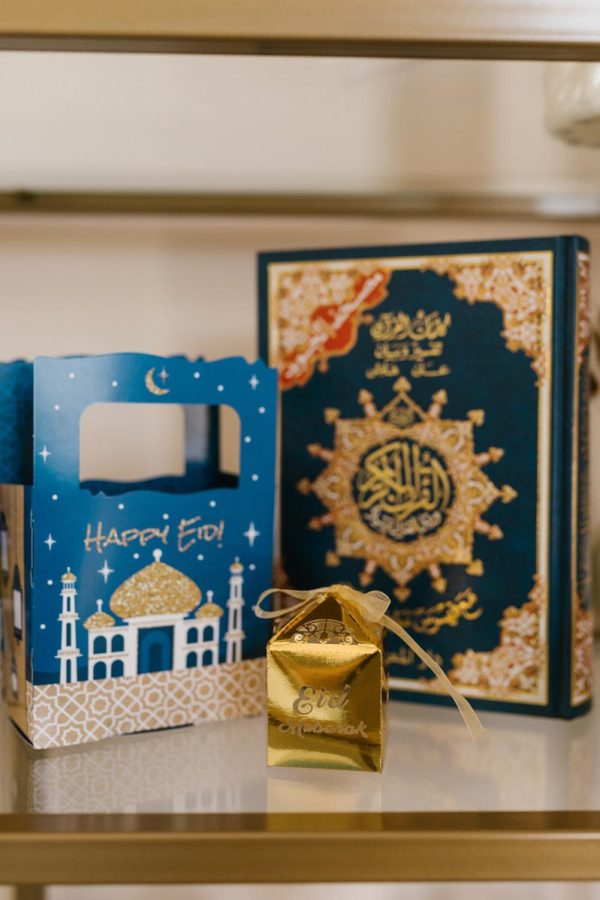Ramadan mubarak
April 6, 2023
The appearance of the crescent moon during the ninth month of the Islamic lunar calendar marks the beginning of Ramadan. Ramadan is a holy month that varies about 11 days per year, due to the shorter Islamic calendar, only 254 days. This year Ramadan falls from March 22 to April 20, 2023.
Tradition states that on the “Night of Power” God showed the prophet Muhammad the holy book Quran to help guide the people. Ramadan is for reflection, group prayer in a mosque, and reading the Quran. Tawarīḥ is an additional prayer where they recite the whole Quran over the course of Ramadan. Ramadan helps to earn God’s forgiveness through fasting, prayer, and good acts. Fasting is a way to practice one of the five pillars of Islam, restraint.
Fasting lasts from dusk to dawn. During fasting you are not allowed to eat, drink, or participate in immoral behavior. They start the day with Suḥūr, a meal before dawn that is sometimes signaled by drums or bells. After dusk the fast is broken with a light meal, and then later a large meal, Ifṭār shared with friends and family. There are differing opinions as to when the fast is broken, with the Sunnis believing that fast is broken when the sun is no longer visible, and Shias believe that the fast is not broken until it is completely dark. If you miss a day of fast you are able to make it up with an extra day of fast at the end of Ramadan or volunteering in the community. Children, older people, weak people, pregnant women, people who are traveling, and the mentally ill are excused from fasting.
If you want to respectfully greet your friends you can use the standard greetings “Ramadan/Eid kareem”, meaning “have a generous Ramadan/Eid” or “Ramadan/Eid mubarak”, meaning “have a blessed Ramadan/Eid”. Another way to show respect during school is to make sure you do not offer your fasting friends any food or drinks, showing that you are aware they are fasting. Finally, for students who don’t want to be around food during lunch, they are able to spend their lunch period in the library, a no food and drinks zone.
To mark the end of Ramadan, on the first three days of the 10th month of the Islam calendar they celebrate Eid al-Fitr(“feast of fast breaking”). During Eid al-Fitr they visit relatives’ graves, wear new clothes, give presents, get together with relatives, pray, and gather with family.
“For the last few Eid’s which is the last day of Ramadan, I’ll go over to my friend’s house and celebrate with him. We have this big feast and the entire family is there and it’s awesome”, Senior Nic McKee said.

